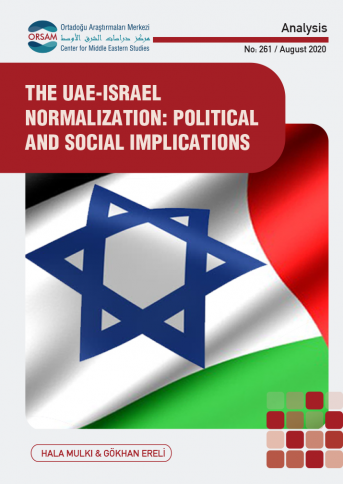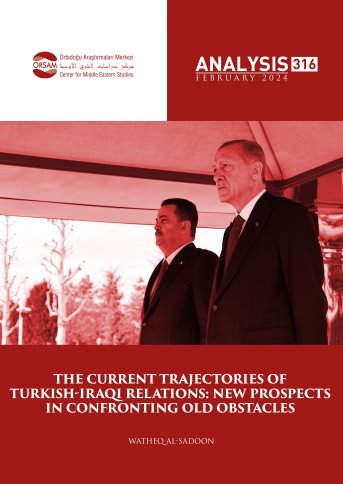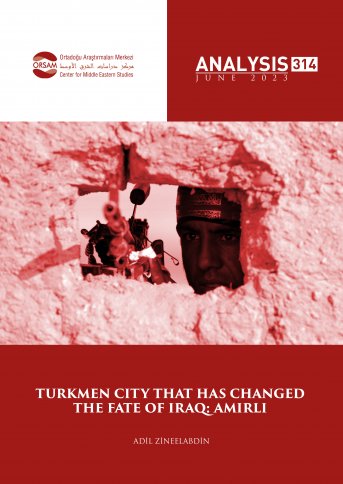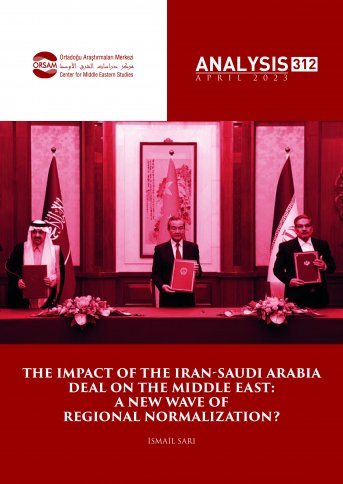
The UAE-Israel Normalization: Political and Social Implications
The United Arab Emirates (the UAE) has stood out among the most important US allies in the Middle East particularly since 2016. Even when Trump was president-elect, the UAE has attempted to influence the Middle East policy of the incoming Trump administration. It has been claimed that many people from the Trump administration have had various relations with both the UAE, Saudi Arabia, and Russia. Ultimately, it was revealed that the UAE and Saudi Arabia were now illegally supporting the Trump election campaign through people, some of whom are now in prison.Especially in 2017 and early 2018, there were many earthquakes within the Trump cabinet as a result of issues that have come up in the campaigning process.
Emboldened by the support of Trump administration, the UAE started to pursue a more effective policy in the Middle East after 2016. In most analyzes, it is mentioned that the most important US allies in the Middle East are Egypt, Saudi Arabia, the UAE, and Bahrain. This partnership policy was also tried to be reified via the Middle East Strategic Alliance (MESA) project, which was very popular for a period. It can be said that the UAE is the most prominent among the Middle Eastern partners of the US. One reason why the UAE is the most important partner is that more than 90% of the UAE’s population is non-citizens and only 10% of the country enjoys the perks of citizenship. The UAE which does not have a large public opinion and whose leaders do not have a sense of accountability to the public has thus become the most important partner of the USA. The fact that its current leader, the Crown Prince of Abu Dhabi Mohammed bin Zayed has a military background and the fact that the USA has been involved in the activities of the region since the 1990s have created a positive perception of the UAE in the Washington policy circles. Even former Secretary of Defense James Mattis when he was a general in the US Army labeled the UAE as “Little Sparta”.The UAE’s becoming a pivot country valued by the US is blended with the UAE leadership’s desire to pursue an active foreign policy. For this reason, the UAE has sought to implement its foreign policy perspective both in the Gulf region and in the wider Middle East with facilitation brokered by the US.
The UAE played a key role in Sisi’s coming to power in Egypt in 2013 and supported the Assad regime in Syria after 2018. Also, the UAE helped Khalifa Haftar, leader of the illegitimate forces in Libya, form the so-called Libyan National Army (LNA) from 2014 onwards and helped him launch various offensives on the Government of National Accord (GNA) in Tripoli. In Yemen, the separatist structure, the Southern Transitional Council (STC), has been supported by the UAE and the UAE did not fulfill the requirements of the Arab Coalition of which it is a staunch member alongside Saudi Arabia.
In addition to all this, what makes the UAE an important partner in the eyes of the US is its ongoing desire to normalize relations with Israel. For some time now, there had been several collaborations between the leadership of the UAE and Israel in the social, cultural, economic, tourism, and sports fields. Although it is argued that the efforts date back to earlier times, it can be argued that the intensive web of relations between the UAE and Israel has increased during the last decade.








